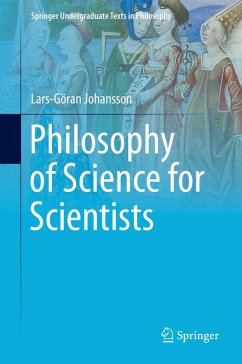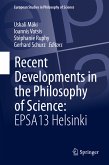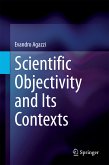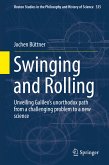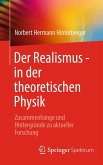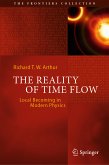Divided into three parts, the book first examines the question What is Science? It describes the evolution of science, defines knowledge, and explains the use of and need for hypotheses and hypothesis testing. The second half of part I deals with scientific data and observation, qualitative data and methods, and ends with a discussion of theories on the development of science. Part II offers philosophical reflections on four of the most important concepts in science: causes, explanations, laws and models. Part III presents discussions on philosophy of mind, the relation between mind and body, value-free and value-related science, and reflections on actual trends in science.
Dieser Download kann aus rechtlichen Gründen nur mit Rechnungsadresse in A, B, BG, CY, CZ, D, DK, EW, E, FIN, F, GR, HR, H, IRL, I, LT, L, LR, M, NL, PL, P, R, S, SLO, SK ausgeliefert werden.
Hinweis: Dieser Artikel kann nur an eine deutsche Lieferadresse ausgeliefert werden.
"The aim of Lars-Göran Johansson's textbook Philosophy of Science for Scientists is ... to provide an introduction to the philosophy of science for students in all fields of science. ... the book is supposed to be suitable for an undergraduate level course in the philosophy of science for philosophy students." (Amanda Thorell, Theoria, Vol. 83, 2017)
"Lars-Göran Johansson's recent book Philosophy of science for scientists is the only textbook in the philosophy of science that is addressed specifically to an audience consisting of scientists. ... In its breadth of treated topics, the book can serve as a basic text to many different courses in the philosophy of science."(Maarten Franssen, Metascience, Vol. 26, 2017)
"Philosophy of Science for Scientists by Lars-Goran Johansson: a lovely textbook for undergraduates. It is a highly readable introduction to how one can view the practice of science. ... this is an excellent introduction to understanding science in a general sense. Students and practitioners will find it worthwhile to read and discuss." (David S. Mazel, MAA Reviews, maa.org, November, 2016)
"This is an excellent book that can serve as a very appropriate textbook for the first course in Philosophy of Science. ... it is a very well written book and is an enjoyable reading. ... It is well written by a great authority in the field and I strongly recommend it to you if you are interested in to understand what science is and why science is important for knowledge and our understanding of reality." (Philosophy, Religion and Science Book Reviews, Bookinspections.wordpress.com, July, 2016)

